‘Nothing I want to do more’ than reopen schools – Boris Johnson
The Prime Minister is under pressure to set out how England’s schools will reopen after being closed to curb the spread of coronavirus.

Boris Johnson said England’s schools would reopen “as fast as possible” as he faced Tory pressure to set out a timetable for pupils to return.
The Prime Minister said the Government would be “looking at the potential of relaxing some measures” as England’s lockdown restrictions are reviewed on February 15 but could not guarantee that pupils would return to classes before Easter.
“There’s nothing I want to do more than reopen schools, I’ve fought to keep schools open for as long as I possibly could,” Mr Johnson said.
“We want to see schools back as fast as possible, we want to do that in a way that is consistent with fighting the epidemic and keeping the infection rate down.”
The Prime Minister faced pressure to set out a timetable for pupils to return to class – currently only vulnerable children and those whose parents are key workers are attending school, with home learning for all others.
The Prime Minister’s official spokesman said the Government would examine the data “and that will inform what we may or may not be able to ease from (February) 15 onwards”.
He added: “It has always been our intention to ease restrictions where we can from that point on the 15th, and schools are obviously our top priority.”
The Prime Minister was speaking on a visit to a vaccination site at Barnet Football Club in north London as the latest figures showed 6,573,570 people in the UK have received a first dose of vaccine – a rise of 220,249 on the previous day’s figures.
Mr Johnson said: “I do think now this massive achievement has been made of rolling out this vaccination programme, I think people want to see us making sure we don’t throw that away by having a premature relaxation and then another big surge of infection.”
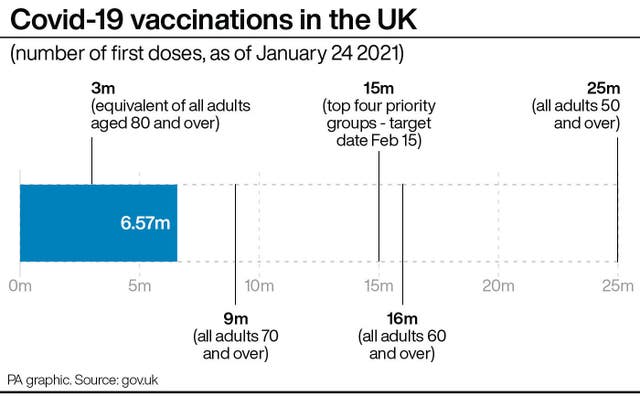
Official figures showed a further 592 people had died within 28 days of testing positive for Covid-19 as of Monday, while there had been a further 22,195 lab-confirmed cases of coronavirus in the UK.
Education Secretary Gavin Williamson is widely expected to confirm this week that there will be no return to the classroom after the February half-term break, as ministers had hoped.
A minister is expected to answer an urgent question on the issue in the Commons on Tuesday.
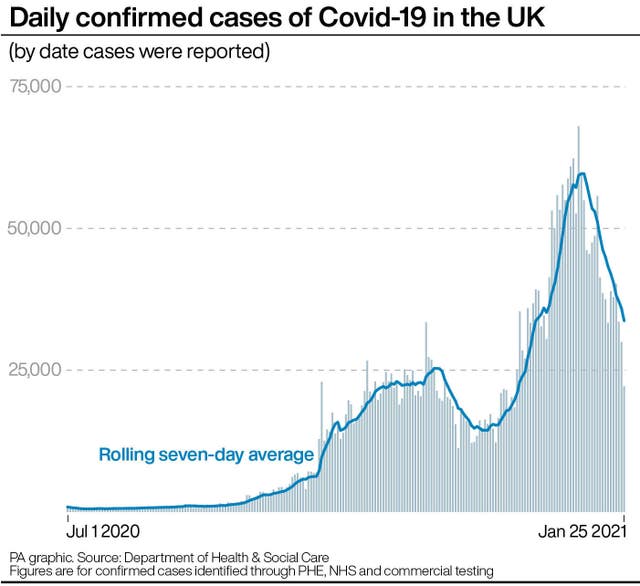
Robert Halfon, Tory chairman of the Commons Education Committee, told the BBC: “It may be that one thing the Government should consider is that even if there are tighter restrictions in other parts of our society and economy, you have those restrictions in order to enable the schools to open.”
He told Times Radio he wanted ministers to “place as much importance on schools and colleges as they do on the economy and the National Health Service”.
Meanwhile, senior ministers are due to meet on Tuesday to discuss a proposal to require travellers arriving in the UK to pay to quarantine at a designated hotel to ensure they are following the rules on self-isolating.
The move follows concerns about the possibility of new coronavirus variants being imported from elsewhere in the world following the emergence of concerning strains in South Africa and Brazil.
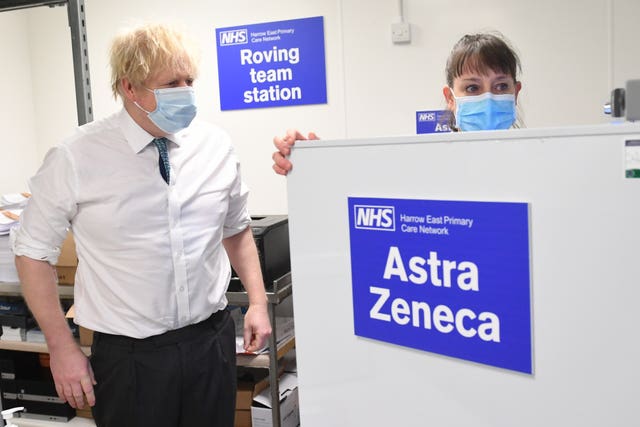
Mr Johnson said: “We have to realise there is at least the theoretical risk of a new variant that is a vaccine-busting variant coming in, we’ve got to be able to keep that under control.”
He said “that idea of looking at hotels is certainly one thing we’re actively now working on”.
“We need a solution that gives us the maximum possible protection against reinfection from abroad.”
In other developments:
– Less than 60% of people advised to isolate because of coronavirus are doing so, the head of NHS Test and Trace Baroness Harding revealed.
– Labour leader Sir Keir Starmer is self-isolating for the third time since the pandemic started after he came into contact with a positive case.
– Moderna said its vaccine appeared to remain effective against all emerging mutations of coronavirus that have been detected to date.
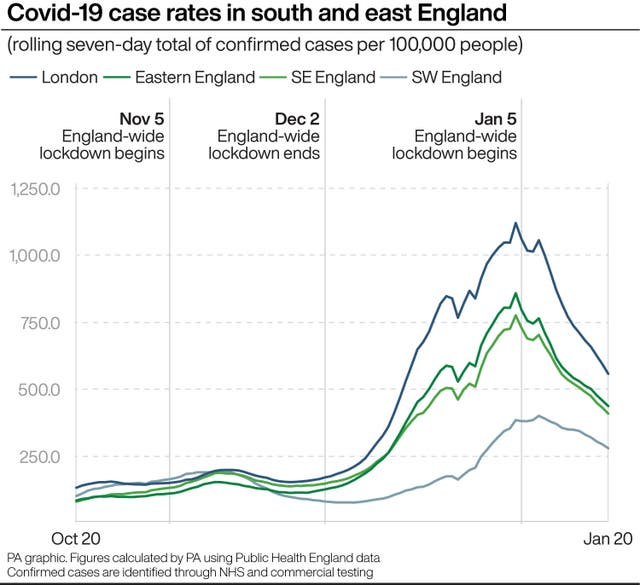
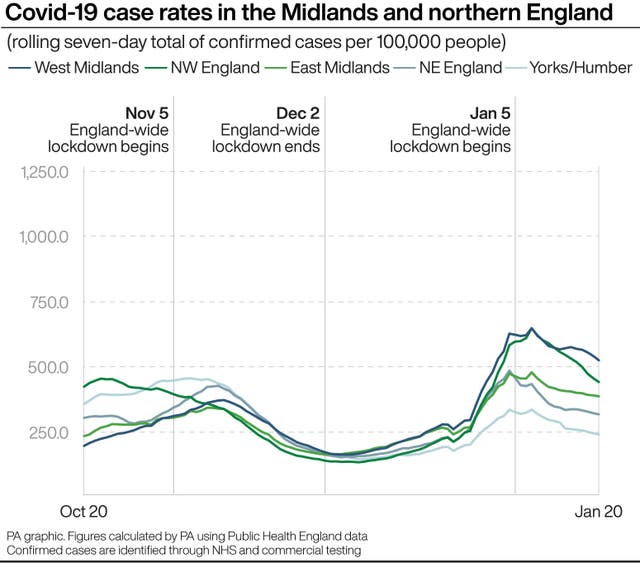
There was more evidence England’s national lockdown is having an impact on the spread of coronavirus.
Case rates are down in every region, with most now at their lowest since before the start of 2021, latest figures show.
London continues to have the highest rate, with 557.8 cases per 100,000 people for the seven days to January 20, but this is down from 770.6 a week earlier, and the lowest since the seven days to December 16.
Yorkshire & the Humber continues to record the lowest rate of any region: 241.2, down from 286.1.





